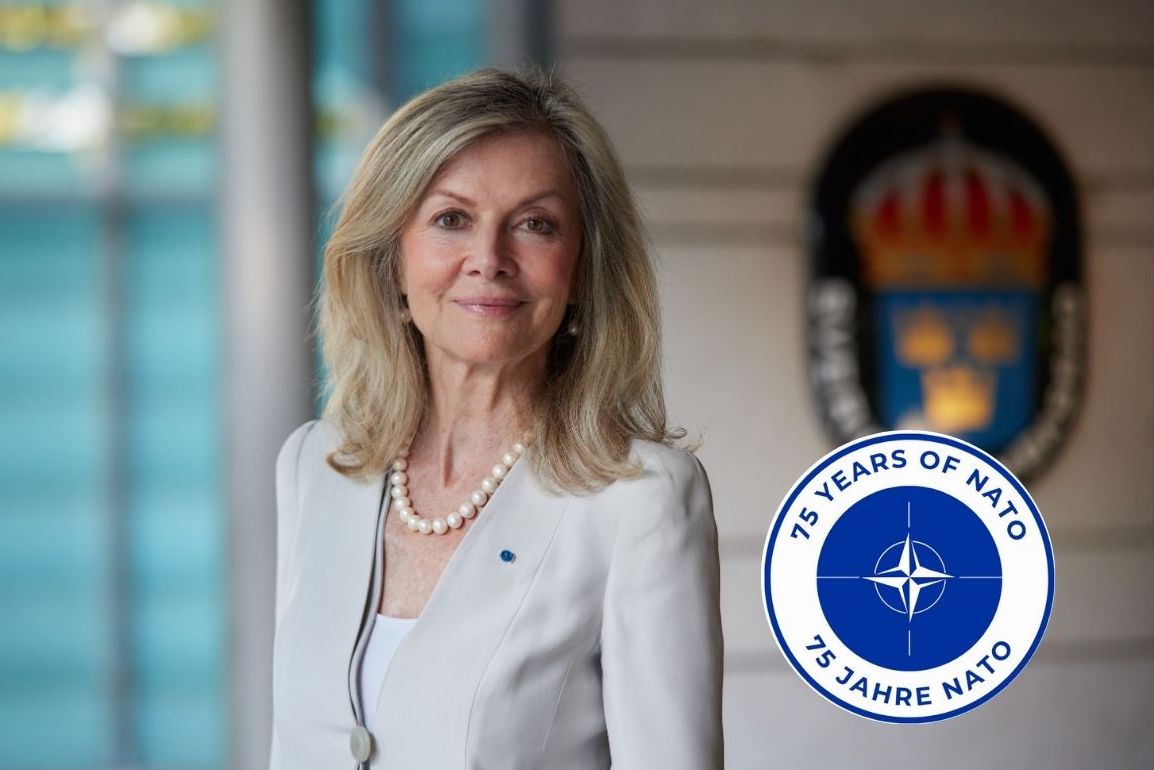Sweden has finally come home
 Photo: Sweden's Embassy to Germany
Photo: Sweden's Embassy to Germany
by Veronika Wand-Danielsson, Sweden’s Ambassador to Germany
Sweden’s application for NATO membership and its accession is a historic paradigm shift. Since Sweden is leaving behind more than two centuries of military non-alignment – this is a Swedish “Zeitenwende”. After Russia´s brutal full-scale invasion of Ukraine, the then Social Democratic government under Prime Minister Magdalena Andersson immediately appointed an inter-parliamentary working group to analyze the new security policy consequences of the attack for Sweden and for Europe. The working group concluded that Russia would pose a serious threat to European and Swedish security also in the long term and that it was therefore in Sweden’s national interest to join NATO together with Finland.
Joining NATO is a paradigm shift for Sweden and for the Swedish people. Our Prime Minister Ulf Kristersson recently stated, “Sweden has finally come home“! As a new NATO member, our population now feels safer thanks to NATO’s defence guarantees. And Sweden is, of course, prepared to protect also the common security of the NATO alliance. Moreover, joining NATO is seen as a natural and final step after three decades of ever closer partnership with NATO. In 1994, Sweden joined PFP (Partnership for Peace) and one year later, in December 1995, Swedish troops were under the command of NATO-SFOR in Bosnia for the first time. Since then, Sweden has made a significant contribution to all major NATO crisis management operations, including Kosovo, Afghanistan, and Libya, often in close cooperation with Germany. In this respect, we have long been a close partner. Since 2014 Sweden has been part of a group of Enhanced Opportunities Partners, participating in most NATO Ministerial meetings and also participated in numerous NATO-led exercises.
Our membership has strong and broad support both in parliament and among our population. The application to join NATO was made with broad parliamentary support – six out of eight parties were in favour of the decision. Membership is also supported by the population. Between 2021 and 2022, the Russian full-scale invasion led to the biggest and fastest change of public opinion in Swedish history: in 2021, only 29% supported NATO membership, today the support is stable at 67%.
Sweden and Finland will extend NATO’s operational depth in the Baltic Sea region and link the far north, the North Atlantic, more closely with the Baltic Sea region.
Following the accession of Finland and Sweden, political cooperation in the north and with the Baltic states will deepen. Today, all Baltic Sea countries – except for Russia – are members of the Alliance. This will fundamentally change the security context in our part of Europe. Sweden and Finland will extend NATO’s operational depth in the Baltic Sea region and link the far north, the North Atlantic, more closely with the Baltic Sea region.
Sweden’s geostrategic position will make a decisive contribution to being able to deploy also reinforcements from North America in Europe
With Sweden as a member, our sea, airspace and territory can be used for reinforcements to be deployed quickly from Swedish soil to the Baltic states. In addition, Sweden’s geostrategic position will make a decisive contribution to being able to deploy also reinforcements from North America in Europe.
At the same time, this means also a greater responsibility for Sweden in protecting sea transports through the Baltic Sea, above all to secure supplies for Finland. We will assume this responsibility in our neighbourhood and contribute to the deterrence policy of the Alliance and all Allies.
Sweden also has some unique military capabilities. Our fighter planes will participate in NATO’s Baltic Air Policing and Sweden’s unique naval forces, which are particularly suited to the conditions of the Baltic Sea, will be able to jointly with the German navy control the Baltic Sea approaches.
The Swedish government recently decided to reinforce the Canadian-led Nato presence in Latvia with a battalion. All in all, our defence spending has been doubled between 2020 and 2024. This means that Sweden has already reached the NATO standard of 2% of GDP this year.
To conclude: NATO is making Sweden safer – and Sweden is making NATO stronger!
About the author: Veronika Wand-Danielsson is Sweden’s Ambassador to Germany since September 1st of 2023. Prior to this position she was Director of the department for Europe and North America and of the department for America in Sweden’s Ministry for Foreign Affairs. From 2014 until 2020 she was Sweden’s Ambassador to France and Monaco.
